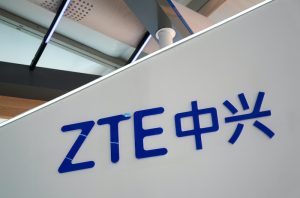(ATF) More insight has been given into the thinking of Chinese regulators behind the suspension of the huge IPO planned by Ant Finance early in November.
Indeed, a commentary printed in the Communist Party’s top mouthpiece, the Peoples’ Daily, today (Nov 23) proposed breaking up big multi-faceted platforms like Alibaba, JD.com, and Tencent.
As China’s leadership see the domestic market as a new pillar of the economy, it is bringing it looks determined to bring it under stricter party control.
Regulators have become increasingly nervous about online micro-lending in China, partly because of the debts are not guaranteed by collateral and the amount of total lending has become enormous.
As of September 2020, there were 7,227 online small lenders nationwide, with a loan balance of over 900 billion yuan (close to US$137 billion).
‘Major systemic risk’
These online small loans have become a major systemic risk in the Chinese economy, analysts say.
Online micro-lending risks stem from the fact the loan amount to the borrower is determined only by credit and not guaranteed by collateral. The leverage of loan funds is high and academics have said that “current supervision of online micro-lending companies is insufficient.”
Ten years ago, the ratio of Chinese residents with such debts was only about 18% of citizens, but that figure has since blown out to nearly 60%. So, the debt ratio had jumped and become a huge risk for China’s financial system.
The State Administration for Market Regulation (SAMR) recently issued Guidelines for Anti-Monopoly in the Field of (Internet) Platform Economy (Draft for Comment), which will solicit public opinions by November 30.
The rules aim to prevent monopolistic behavior in the economy via internet platforms, and clearly intend to define a “choice of two” as an abuse of market dominance that would constitute restricted transactions.
This is one of the main points that stopped the Ant Financial listing from going ahead in Shanghai and Hong Kong early this month, when it was touted as the world’s largest IPO. (See links below for earlier reports).
‘Giant firms may abuse their dominance’
The draft guidelines note that operators in the field of internet lending with a strong market position may abuse their dominance and restrict transactions to rival parties without justifiable reasons, to exclude or restrict competition.
In the recent e-commerce ‘Double 11’ event, a Chinese shopping extravanganza similar to Black Friday online, saw top players like T-Mall, a subsidiary of Alibaba, which also set up Ant Finance, re-write the rules and leave smaller players out in the cold.
Similarly, Ant Finance offers micro-credit for online purchases on T-Mall or Taobao.com, both of which are also Alibaba subsidiaries.
Though not mentioning Ant Financial directly, SAMR said it will analyse whether certain behaviour constitutes a restricted transaction behavior.
Specifically, the following factors will be considered: whether an internet platform requires a counterparty of the transaction to “choose one of two” or other moves with the same effect between the competitive platforms; whether a platform limits the counterparty of the transaction to conduct exclusive transactions with it; whether there is a limit on the counterparty of the transaction to only conduct transactions with designated operators; and whether a site restricts the counterparty to transactions with specific operators.
These restrictions may be achieved through written agreements, through telephone or verbal methods negotiated with the counterparty, or through restrictions or obstacles in platform rules, data, algorithms, and technology.
The draft for comments point out that it is necessary to maintain fair and orderly competition in the platform economy through supervised anti-monopoly regulations.
But they give full play to the role of the platforms to efficiently match supply and demand, and reduce transaction costs, develop potential markets, and promote resource allocation optimisation, technological progress, efficiency improvement, and support and promote development of the real economy.
Govt move was timely and necessary: Alibaba CEO
Meanwhile, Alibaba Group’s CEO Daniel Zhang was putting a brave face on the government’s sudden move to torpedo the Ant listing.
Speaking at the World Internet Conference on Monday, Zhang said China’s move to draft rules aimed at preventing monopolistic behaviour by internet platforms was “timely and necessary”.
Zhang said Chinese internet companies have moved to the forefront of the global industry with the help of government policies, but regulations also needed to evolve.
The industry’s “development and government supervision is a relationship that promotes and relies on each other, so that platform enterprises cannot only develop well themselves, but also serve the sustainable and healthy development of the whole society,” he said.
The annual conference, running from November 23-24, is organised by the Cyberspace Administration of China. It is being held this year as Alibaba and the country’s other internet giants such as Tencent Holdings and Meituan face increasing state scrutiny.
While the suspension of the Ant listing came as a huge shock, it has since become obvious that e-commerce marketplaces and payment services will also face greater oversight under the draft rules published by China’s market regulators.
Zhang is one of the few Chinese technology chiefs to appear publicly at the event after it was scaled down due to the Covid-19 pandemic. Other chief executives such as Qualcomm Inc’s Steve Mollenkopf delivered remarks via video.
With reporting by Reuters























